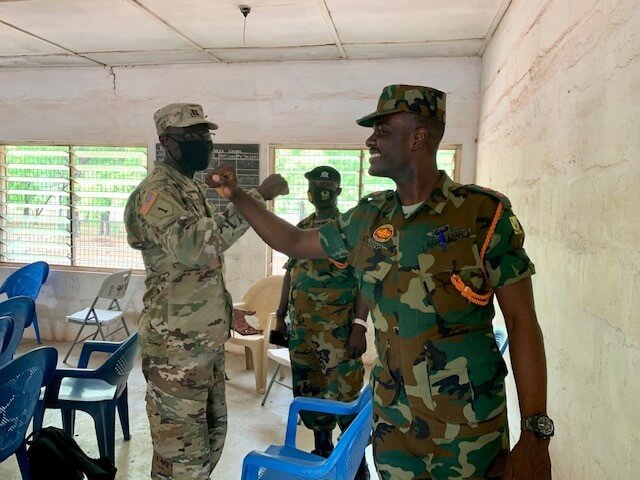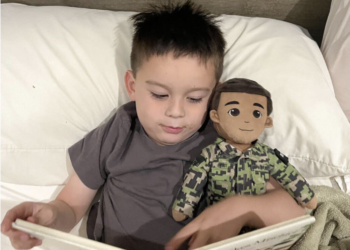The 2nd Security Force Assistance Brigade is now regionally aligned to the AFRICOM AOR, including a force package containing 20 teams employed through a six-month period in Africa, including in Senegal, Kenya, Ghana, Djibouti, and Tunisia.
“We represent one of the Army’s newest strategic tools in the arsenal, and we provide a critical piece to our Army’s future,” said Col. Michael Sullivan, commander of the 2nd SFAB, when discussing the recent advisory mission across the African continent during a media roundtable. “We provide an economy of force and scale option to provide access, presence, and influence in our role in global competition.”
SFAB’s footprint
SFAB’s footprint on the continent constitutes security progress, said Maj. John Flach, commander of Charlie Company, 2nd Battalion, 2nd SFAB. He explained the difference between now and years past, is the significant continuity in each of the countries that currently have an advisory arrangement with the United States.
“So, because 2nd SFAB is now regionally aligned to the AFRICOM AOR, I know and work closely with who my replacement is going to be at the end of my tour, and then I know who I’m going to replace when my company rotates back into Djibouti and links up with the same partner force that we worked with previously, and those relationships remain strong,” Flach said.

Global tensions in Africa
Mounting concerns about security threats posed by China and Russia globally have heightened tensions with both world powers. In 2017, China opened its first overseas military base in Djibouti. Flach elaborated on the presence of both countries in Africa.
“I can speak to that from Djibouti, which is probably where there’s one of the more significant competition spaces on the continent because of its strategic location,” he said. “So there was absolutely presence from both, Chinese and Russian military in Djibouti, and they’ve certainly expressed the desire to become a military partner there in the nation.”
Partnering with the U.S.
Flach said the Djiboutians had the opportunity in 2017 to select China or Russia to partner with for security force assistance development but chose the U.S. because of its military excellence and professionalism.
“And I think that demonstrates a good sign of the reputation that we have developed,” Flach said.
Read: From Africa to the Chaplain Corps
He also said SFAB’s approach is free of self-serving intentions and centered on the objectives of the nation’s military.
“So although China’s investing heavily in the country, and Russia also has a presence there, is pursuing opportunities; we are there to train their military and focus on helping them meet their objectives and I think we’ve received a lot of positive feedback from that effort,” he said.
COVID-19’s impact on the mission
On the COVID-19 front, Sullivan admitted the pandemic did delay acceptance of some of the advisory missions and impeded the dispersal of the teams. The 2nd SFAB prepared for the virus during the last year as teams were employed throughout the AFRICOM AOR.
“Just as an example, we went through a very deliberate process in terms of making sure all our advisors were tested COVID-negative and prepared to enter the environment ready to advise and not be hampered by the ongoing pandemic,” he said.
Sullivan said during the past six months, there wasn’t a single COVID-positive case related to the advisory mission in AFRICOM AOR.
Read: The Army is reorganizing its SFA units to deploy globally.
“So, it just takes the diligent practice in force protection measures that we’re doing right here at home,” he said.
As a semblance of normalcy returns to the world, Sullivan said, 2nd SFAB demonstrated its ability to work in environments safely.
“Not only for our own soldiers and our advisors but for the partner force as well.”







































